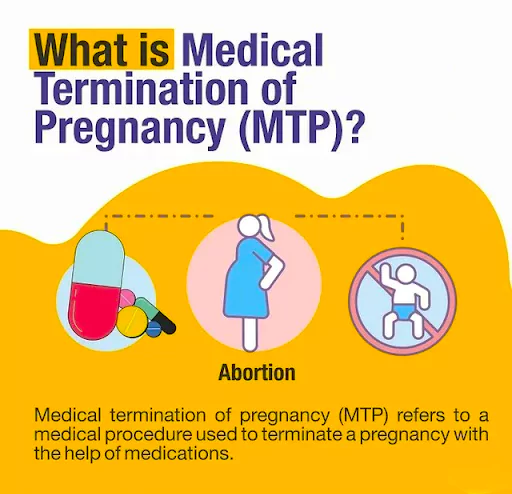The Bombay High Court allowed a woman to terminate her 25-week pregnancy at a private hospital, despite the 24-week limit set by the Medical Termination of Pregnancy (MTP) Act, 1971.
- The decision was based on medical and legal grounds, considering fetal abnormalities and reproductive rights.
About Medical Termination of Pregnancy (MTP) Act

- Origin and Objective: Enacted in 1971, the MTP Act legalized abortion under specific conditions to safeguard women’s health.
- It does not permit abortion solely as a family planning method or personal choice.
- Termination is allowed if pregnancy risks the woman’s life, causes grave physical/mental injury, or if the fetus has severe abnormalities..
- 2021 Amendments: Provided special provisions for Pregnancy between 20 to 24 weeks and beyond 24 weeks.
Key Provisions of the MTP Amendment Act, 2021
- Up to 20 weeks : Allowed for married/unmarried women in case of contraceptive failure.
- Requires approval from one registered medical practitioner.
- Between 20 to 24 weeks: Requires approval from two registered medical practitioners (RMP).
- Applies to special categories such as:
- Survivors of sexual assault, rape, or incest.
- Minors.
- Women facing marital status changes (widowhood/divorce during pregnancy).
- Women with physical disabilities or mental illnesses.
- Foetal malformation cases where the child would have severe physical or mental abnormalities.
- Beyond 24 weeks : Allowed only in cases of substantial fetal abnormality.
- Requires approval from a Medical Board set up by the state government.
- Doctors assess risks to the woman’s life, physical and mental health, or severe fetal abnormalities.
- Confidentiality Clause: The name and details of a woman undergoing abortion shall not be disclosed, except to authorized legal entities.
Concerns Raised Against the Provisions
- Limited Access to Private Hospitals: The MTP Rules lack a category for termination beyond 24 weeks in private hospitals.
- Only government-approved facilities can conduct abortions beyond 24 weeks, restricting women’s choices.
- Delays Due to Medical Board Approval: Women with severe fetal abnormalities must seek approval from a Medical Board, causing delays in urgent cases.
- Need for Clarity in Private Healthcare Regulations : The lack of clear guidelines for private hospitals leads to legal hurdles and denial of timely medical care.
Global Practices on Termination of Pregnancy
- France: Abortion is legal up to 14 weeks of pregnancy.
- After 14 weeks, it is allowed for medical reasons, subject to approval by a medical board.
- United States (Varies by State): Roe v. Wade (1973) initially guaranteed the right to abortion, but the Dobbs v. Jackson (2022) ruling overturned federal protections.
- Some states allow abortion up to viability (~24 weeks), while others have stricter bans or gestational limits.
- United Kingdom: Legal up to 24 weeks under the Abortion Act 1967.
- Beyond 24 weeks, it is permitted only if there is a risk to the woman’s life, severe fetal abnormalities, or grave physical/mental harm.
![]() 18 Feb 2025
18 Feb 2025

